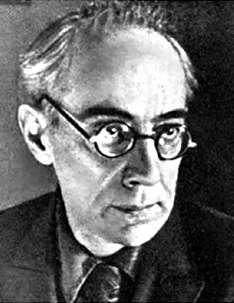Alexander Beliayev (Alexander Beliayev)

Alexander Beliayev was born in Smolensk in the family of an Orthodox priest. His father, after losing two other children (Alexander’s sister Nina died at childhood from sarcoma and his brother Vasiliy, a veterinary student, drowned during a boat trip), wanted him to continue the family tradition and enrolled Alexander into Smolensk seminary. Belyaev, on the other hand, didn’t feel particularly religious and even became an atheist in seminary. After graduating he didn’t take his vows and enrolled into a law school. While he studied law his father died and he had to support his mother and other family by giving lessons and writing for theater. After graduating from the school in 1906 Belyaev became a practicing lawyer and made himself a good reputation. In that period his finances markedly improved, and he traveled around the world extensively as a vacation after each successful case. During that time he continued to write, albeit on small scale. Literature, however, proved increasingly appealing to him, and in 1914 he left law to concentrate on his literary pursuits. However at the same time, at the age of 30, Alexander became ill with tuberculosis. Treatment was unsuccessful; the infection spread to his spine and resulted in paralysis of the legs. Belyaev suffered constant pain and was paralysed for six years. His wife left him, not wanting to care for the paralyzed. In search for the right treatment he moved to Yalta together with his mother and old nanny. During his convalescence, he read the work of Jules Verne, H. G. Wells, and Konstantin Tsiolkovsky, and began to write poetry in his hospital bed.
By 1922 Alexander Beliayev had overcome the disease and tried to find occupation in Yalta. He served a brief stint as a police inspector, tried other odd jobs such as a librarian, but life remained difficult, and in 1923 he moved to Moscow where he started to practice law again, as a consultant for various Soviet organizations. At the same time Belyaev began his serious literary activity as writer of science fiction novels. In 1925 his first novel, Professor Dowell’s Head (Голова Профессора Доуэля) was published. From 1931 he lived in Leningrad with his wife and oldest daughter; his youngest daughter died of meningitis in 1930, aged six. In Leningrad he met H. G. Wells, who visited the USSR in 1934. In the last years of his life Belyaev lived in the Leningrad suburb of Pushkin (formerly Tsarskoye Selo). At the beginning of the German invasion of the Soviet Union during the Second World War he refused to evacuate because he was recovering after an operation that he had undergone a few months earlier.
Alexander Beliayev died of starvation in the Soviet town of Pushkin in 1942 while it was occupied by the Nazis. A German officer and four soldiers carried his body from his home and conducted a burial. The general spoke a short eulogy, saying that when he was a boy, he had loved reading the writer’s books translated into German; as a gesture of respect, they gave him an Orthodox burial, in the ground. The exact location of his grave is unknown. A memorial stone at the Kazanskoe cemetery in the town of Pushkin is placed on the mass grave where his body is assumed to be buried. His wife and daughter managed to survive and got registered as Volksdeutsche (Belyaev’s wife’s mother was of Swedish descent). Near the end of the war they were taken away to Poland by the Nazis. Due to this, after the war, Soviets treated them as collaborators: they were exiled to Barnaul (Western Siberia) and lived there for 11 years.
Born
- March, 16, 1884
- Smolensk, Russia
Died
- January, 01, 1942
- Russia
- Pushkin, Saint Petersburg
Cause of Death
- starvation
Cemetery
- Kazanskoe Cemetery
- Pushkin, St. Petersburg
- Russia

